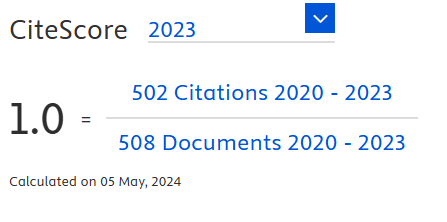A pilot study of Resilience Programme through Group Dynamics on Academic Problems among the Matthayom Suksa 1 Students of Chiang Mai University Demonstration School
DOI:
https://doi.org/10.18006/2022.10(3).539.543Keywords:
Resilience, Resilience Program, Academic Problems, Pilot Study, StudentsAbstract
The objective of this study was to develop a Resilience Programme through Group Dynamics on Academic Problems among Matthayom Suksa 1 Students at Chiang Mai University Demonstration School. For this, four junior high school students were selected as respondents. The effect of the resilience program was evaluated through a general questionnaire, the Canadian Occupational Performance Measures (COPM), and Resilience Inventory. Further, the resilience program was developed by using cognitive behavioral therapy combined with acceptance and commitment therapy, group dynamics, and resilience according to the concept of Grotberg. The total period of the program was 11 weeks, with 1 session per week lasting for 60 minutes. Results of the study revealed that all the selected respondents had higher academic performance and most of them (75%) had higher academic satisfaction and resilience score. After participating in this program, the samples had a higher average resilience score (114.5) as compared to those before participating in the program (107.5). The results of this study can be concluded that the newly developed resilience program can improve the resilience component in almost all the students. Hence, it can be practiced in junior high school students to manage their academic problems. This program can also be a prototype for developing future resilience programs.
References
Abolghasemi, A., &Varaniyab, S.T. (2010). Resilience and perceived stress: predictors of life satisfaction in the students of success and failure. Procedia Social and Behavioural Sciences, 5, 748-752. DOI: https://doi.org/10.1016/j.sbspro.2010.07.178
American Occupational Therapy Association. (2014). Occupational Therapy Practice Framework: Domain and Process (3rd Edition). American Journal of Occupational Therapy, 68, S1-S48. DOI: https://doi.org/10.5014/ajot.2014.682006
Ayala, J.C., & Manzano, G. (2018). Academic performance of first-year university students: the influence of resilience and engagement. High Education Research & Development, 37(7), 1321-1335. DOI: https://doi.org/10.1080/07294360.2018.1502258
Bowden, L., Reed, K., & Nicholson, E. (2018). The contribution of occupation to children's experience of resilience: a qualitative descriptive study. Australian Occupational Therapy Journal, 65(4), 268-275. DOI: https://doi.org/10.1111/1440-1630.12462
Burton, N.W., Pakenham, K.I., & Brown, W.J. (2010).Feasibility and effectiveness of psychosocial resilience training: a pilot study of the READY programme. Psychology, Health, Medicine, 15(3), 266-277. DOI: https://doi.org/10.1080/13548501003758710
Cara, E. (2013). Groups. In Cara, E., & MacRae, A. (Eds.) Psychosocial occupational therapy: An evolving practice (3rd ed., pp. 671-711), New York: Delmar Cengage learning.
Cole, M.B. (2018). Group dynamics in occupational therapy: The theoretical basis and practice application of group intervention (5th ed.). Thorofare, NJ: Slack Incorporated.
Comas-Diaz, L., Luthar, S.S., Maddi,S.R., O’Neill, H.K., Saakvitne, K.W., & Tedeschi, R.G. (2013). The road to resilience. Retrieved from https://www.uis.edu/counselingcenter/wp-content/uploads/site s/87/2013/04/the_road_to_resilience.pdf, accessed on 15 July2020.
De Bruyn, E.H. (2005). Role strain, engagement and academic achievement in early adolescence. Educational Studies, 31(1), 15-27. DOI: https://doi.org/10.1080/0305569042000310930
Early, M.B. (2017). Mental health concepts and techniques for the occupational therapy assistant (5th ed.), Philadelphia: Wolters Kluwer.
Fallon, C.M. (2010). School factors that promote academic resilience in urban Latino high school students (Unpublished PhD thesis), Chicago: Loyola University.
Grotberg, E. (1995). A guide to promoting resilience in children: strengthening the human spirit. Bernard van Leer Foundation.
Joyce, S., Shand, F., Tighe, J., Laurent, S.J., Bryant, R.A., & Harvey, S.B. (2018). Road to resilience: a systematic review and meta-analysis of resilience training programmes and interventions. British Medical Journal Open, 8, 1-9. DOI: https://doi.org/10.1136/bmjopen-2017-017858
Jullasub, N., & Ativittayaporn, C. (2008). The problem in studying and the behaviour of students in the secondary school that belongs to office of the basic education commission: OBEC, Songkhla province according to the attitude of students, teachers and parents. Thaksin University Journal, 3, 1-18.
Kittisoonthorn, D. (2016). Effect of cognitive behavioral therapy group counseling on resilience and emotion regulation in middle childhood. Retrieved from http://cuir.car.chula.ac.th/handle/ 123456789/55389 on July 15, 2020.
Law, M., Baptiste, S., Carswell, A., McColl, M.A., Polatajko, H.J., & Pollock, N. (2020). History of the COPM. Retrieved from https://www.thecopm.ca/about/history October 10, 2020.
Ninthachan, P. (2015). The resilience in life: the idea, the evaluation, and the application. Choodthong, Bangkok.
Sacker, A., & Schoon, I. (2007). Educational resilience in later life: resources and assets in adolescence and return to education after leaving school at age 16. Social Science Research, 36(3), 873-896. DOI: https://doi.org/10.1016/j.ssresearch.2006.06.002
Tuntipivattanasakul, P. (2008). The manual of the activity in building the resilience for the public health personnel. Agricultural Cooperative Federation of Thailand, Nonthaburi.
World Health Organization (2010) Participant: IMAI one-day orientation on adolescents living with HIV. Retrieved from https://apps.who.int/iris/handle/10665/44258 on July 15, 2020.
Downloads
Published
How to Cite
License

This work is licensed under a Creative Commons Attribution-NonCommercial 4.0 International License.












